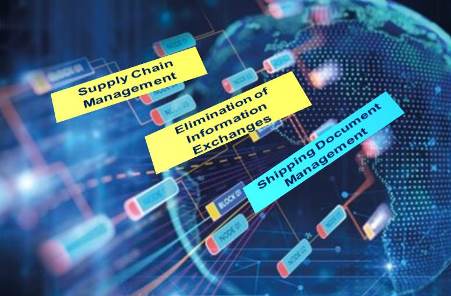 Participants see big potential in eliminating data exchanges in favor of real-time viewing.
Participants see big potential in eliminating data exchanges in favor of real-time viewing.
A test of blockchain technology conducted by several international corporations and a European customs organization indicates the technology can save global transport and logistics companies hundreds of millions of dollars a year by sharing and distributing relevant shipping data among participants, rather than by the traditional practice of exchanging documents, the group said.
The group, made up of Belgian beverage giant Anheuser-Busch InBev, Singapore-based container line APL, Swiss freight forwarder and third-party logistics (3PL) provider Kuehne + Nagel, consultancy Accenture, and the unidentified European customs body, tested blockchain on a reported dozen InBev international shipments.
The group discovered that, by using blockchain, it could eliminate much of the data replication, because documents could be viewed by all stakeholders in real time rather than being transmitted back and forth between the parties:
- About 70 percent of the data contained in international shipping documents can be replicated
- More than 20 different documents are required in order to process international shipments in the automotive, retail, and consumer goods industries
- Blockchain can expedite the flow of transport documents, reduce data entry time by 80 percent, streamline the process for checking cargo, and reduce the burden of customs compliance as well as the cost of failing to comply with a country’s customs regulations
Blockchain is a distributed database system that records and maintains data in a manner that potentially prevents hacking or the involvement of traditional third parties such as banks and attorneys, according to supporters of the technology. This allows multiple stakeholders to securely share access to the same information, they say.
Supporters of blockchain said the technology is poised to revolutionize operations across a multitude of sectors. The transport and logistics industries are arguably at the vanguard of this movement. The Blockchain in Transport Alliance (BITA), which was formed to establish standards for blockchain utilization, has 288 members.
In mid-January, Danish liner giant Maersk Line teamed with IT company IBM Corp. to apply blockchain to global trade and transportation services.
Source: Cristal Credit Newsletter (BIIA member)






















